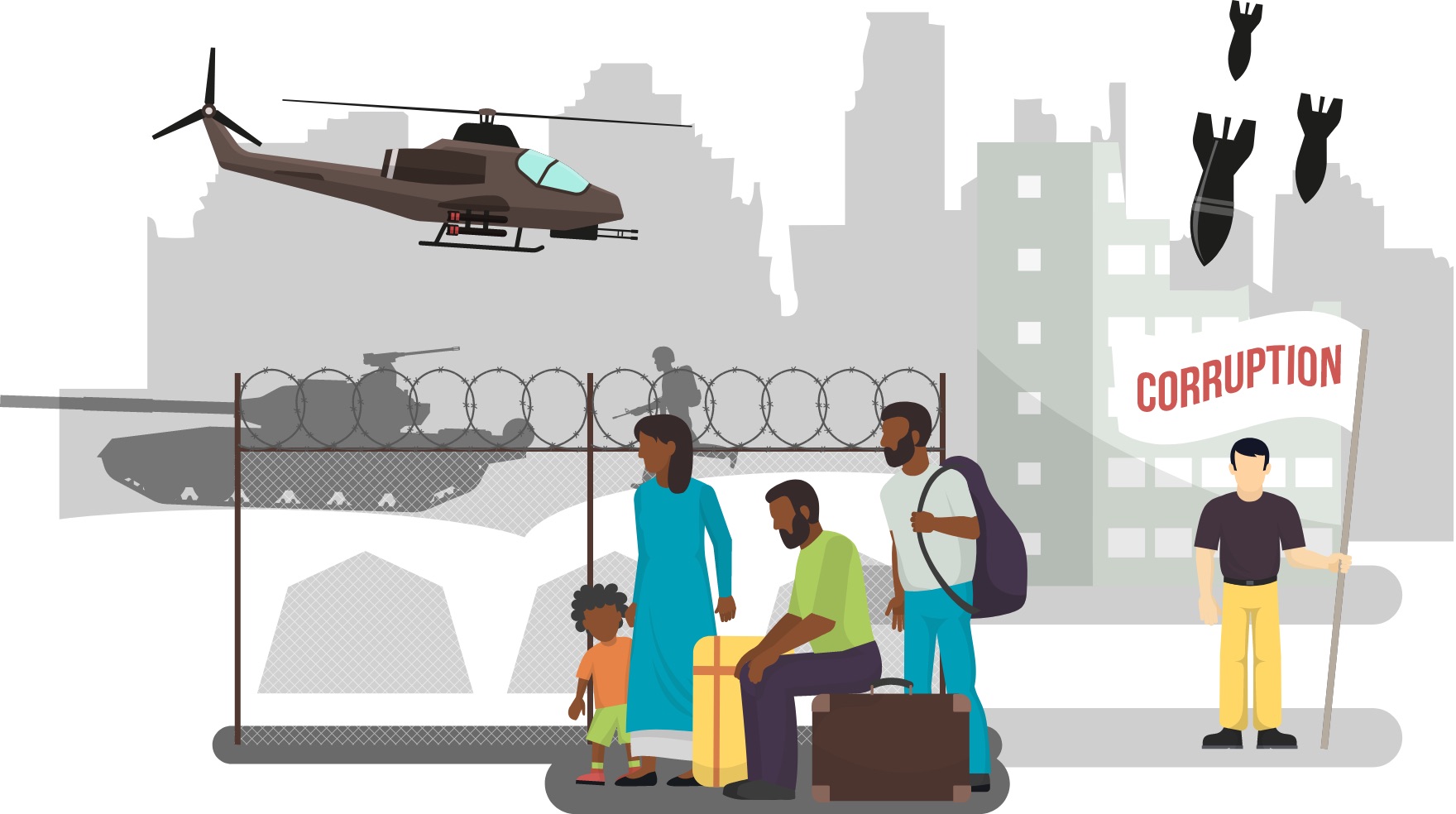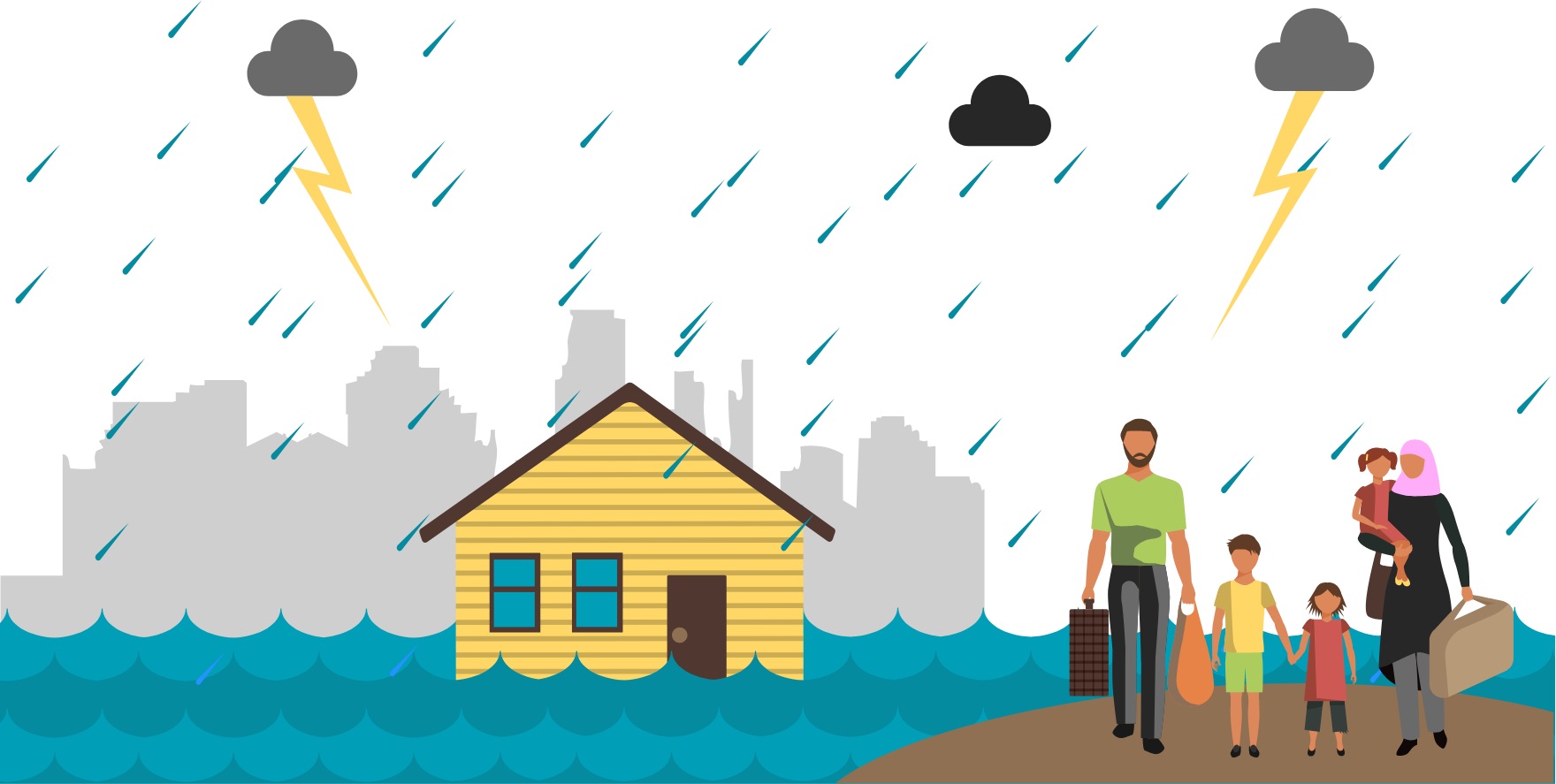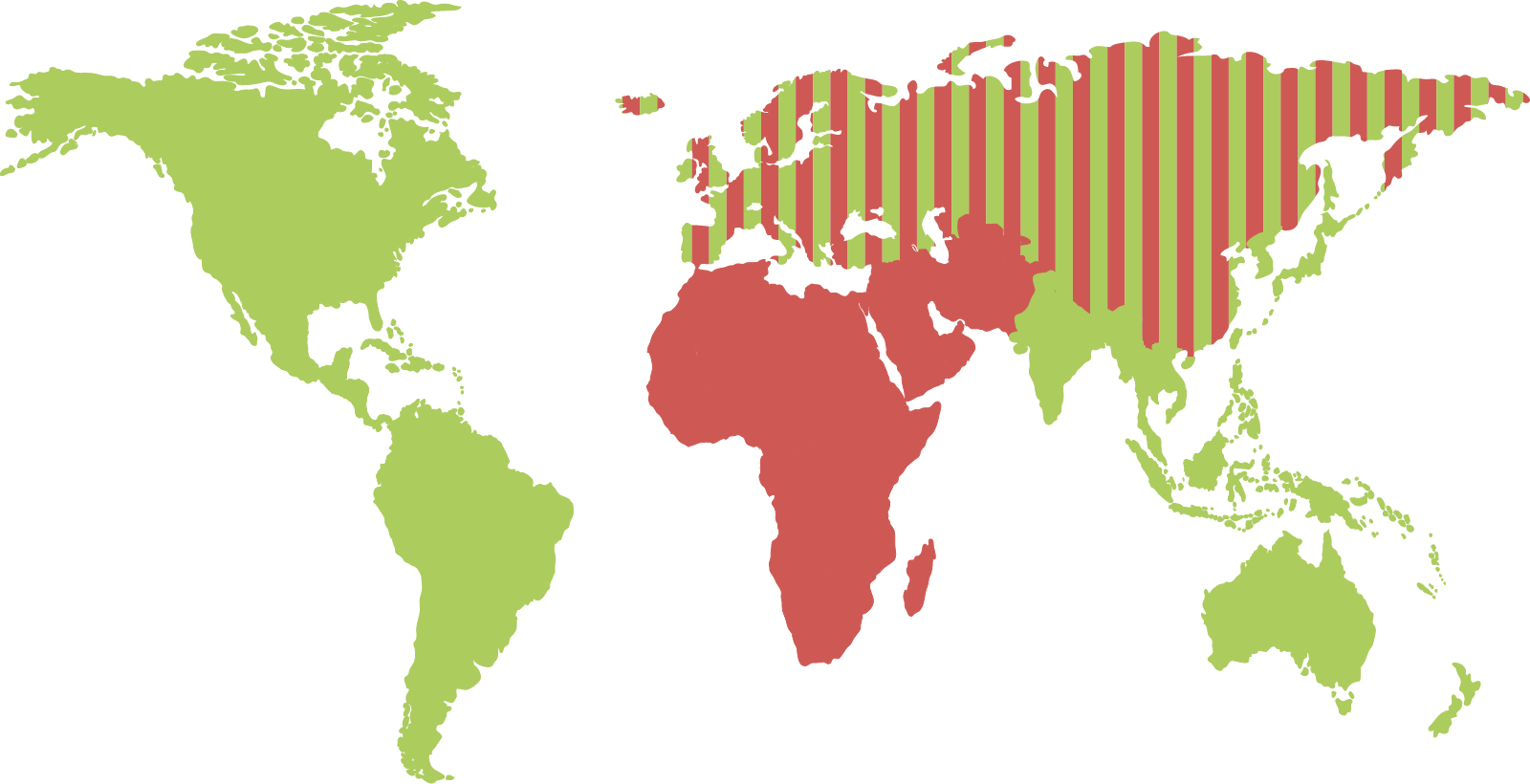Conflict
Environmental disasters

View our new
Resource BookletThe POIDP builds upon the teachings of the Catholic Church about IDPs. It provides practical guidelines for local Churches affected by forced displacement and identifies pastoral practices which can be carried out and renewed.
Download this resource in the language and the format of your choice

In 2019 there were around 33.4 million new displaced persons:

Conflict
8.5 million were displaced by conflicts (25%):
5.2 million displaced people
by armed conflicts
2.7 million displaced people
by the use of force between communities (ethnic, religious indiscrimination, etc.)
16,600 displaced people
by for violence for political reasons
592,900 displaced people
by for criminal violence (murders, threats, extortion)
39,700 displaced people
by other causes
Environment
24.9 million were displaced by environmental disasters (75%):
13 million displaced people
by storms
11.9 million displaced people
by hurricanes and typhoons
10 millions displaced people
by floods
947,000 displaced people
by geophysical events such as earthquakes, tsunamis and volcanic eruptions

Regional Division of Displaced People:


Conflict
Environmental disasters
Regional Division of Displaced People:
Sub-Saharan Africa
53.7% displaced by conflicts
13.9% displaced by environmental disasters
North Africa and the Middle East
30% displaced by conflict
2.5% displaced by environmental disasters
Europe and Central Asia
0.03% displaced by conflict
0.4% displaced by environmental disasters
East Asia and the Pacific Area
3.4% displaced by conflict
38.6% displaced by environmental disasters
South Asia
5.8% displaced by conflict
38.3% displaced by environmental disasters
The Americas
7% displaced by conflicts
6.2% displaced by environmental disasters
Internally Displaced People (IDPs), as defined by the UNHCR, “have been forced to flee, to leave their homes or places of habitual residence, particularly as a result of or in order to avoid the effects of armed conflicts, situations of generalized violence, violations of human rights or natural or human-made disasters, but who have not crossed an internationally recognized State border.” The Church accompanies these vulnerable people on the move who are among the most forgotten and neglected of our times.


Here are some helpful resources to help you understand the Church’s response for IDPs.